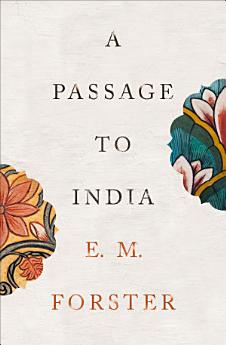Book Review Genre: Literary Fiction
Disclaimer: Reading is all about exploring new worlds, but this Book Review does not shy away from spoiling specific scenes as this is more of my free-flowing thoughts about a book.
The Analysis:
The movie RRR intrigued me enough to pick this one up. This book came to my attention through a booktuber. I have so many thoughts. But, let’s book review it. First, follow me on Goodreads.

Here’s The Blurb:
A Passage to India (1924) is a novel by English author E. M. Forster set against the backdrop of the British Raj and the Indian independence movement in the 1920s. It was selected as one of the 100 great works of 20th century English literature by the Modern Library[1] and won the 1924 James Tait Black Memorial Prize for fiction.[2] Time magazine included the novel in its “All Time 100 Novels” list.[3] The novel is based on Forster’s experiences in India, deriving the title[4] from Walt Whitman’s 1870 poem “Passage to India”[5] in Leaves of Grass.
The story revolves around four characters: Dr. Aziz, his British friend Mr. Cyril Fielding, Mrs. Moore, and Miss Adela Quested. During a trip to the Marabar Caves (modeled on the Barabar Caves of Bihar),[6] Adela thinks she finds herself alone with Dr. Aziz in one of the caves (when in fact he is in an entirely different cave), and subsequently panics and flees; it is assumed that Dr. Aziz has attempted to assault her. Aziz’s trial, and its run-up and aftermath, bring to a boil the common racial tensions and prejudices between Indians and the British who rule India
Cover Critique:
This book is considered a classic. Due to that designation, you will find more than one cover for this book. My copy looked nothing like the depicted cover. I’m not a fan of abstract or illustrated covers in general. I preferred my version better. However, of the covers available now, I thought this was the best cover.
Now The Story:
Book Info:
Pages: 370
Author: E.M. Forster
Available: Google Play
Overall:
I started this book before The Night Swim, but I finished it after. I had no inkling that this too would be about rape. I thought it would be an exploration of India during a bygone time and place. But I suppose this sordid history is a part of it too. However, this is a story of the falsely accused from the viewpoint of the accuser. The story of her assault is a tad convoluted. There is no way to know if it happened for real or if it was just the manic ravings of someone who was somewhat scatterbrained and disconnected from her surroundings. Yet, if it did happen, the poor visual setting, and the ease with which she called to mind the only Indian man she knew points to her poor character, regardless. This is the story that’s often ignored. This is the story that the main character of Night Swim so casually brushed aside for statistics on the number of rapes as if one innocent person in jail was fine if it meant 40 women were okay. Stories like, A Passage to India, is why I can never make that same distinction. Too many POC have fallen by the wayside to ruin entire generations of families thanks to false accusations. Not just in India, but in America, and in more recent times as well. I question anyone who would say this situation is okay, but rape is not. Hopefully one day I will have the courage to write a story of my own highlighting the plight of the falsely accused during an age where it’s not feminist to do so.
While both books were great, I find myself wishing I hadn’t read either.
Part 1: Mosque
This story ambled along revealing parts of India in pretty prose. I struggled to picture it as I warmed up to the characters. Then we get the first glimpses of our trio and they are quite interesting. I expected to understand (a portion of) India through each of their lenses. A native Indian, an elder British woman, and a young British lady.
Only for my teeth to be set on edge by the introduction of the elder woman’s adult son. His subtle cruelty is so matter-of-fact that it leaves me stunned. (An Indian man has no right to even talk to his mother because he is Indian.) He has an inflated sense of self due to his status, while simultaneously trying to hide his utter weakness to live up to it. I also get a peek into why women never pushed back on their son’s or husbands’ actions/beliefs during this era because on some level they had to embrace them. It’s not that his mother was racist cause clearly she was not [I’m not including the caste system that she supports that is inherently racist in this statement]. It’s that she saw the actions of a racist as normal. Here’s a quote:
“Your sentiments are those of a god,” she said quietly, but it was his manner rather than his sentiments that annoyed her.
This book is not funny. However, if there is any moment of levity look no further than the son’s mother and fiancee’s interactions with an Indian family. Her son tried to match her with an Indian family for tourism purposes. They quickly caught on that this family was not meant to have any personality whatsoever. The mother’s actions to test her theory were kinda funny. Until I thought about the pretenses behind that Indian family’s actions and got sad again.
Furthermore, one way we got to know the son was through his views on religion. But only in the sense that he had no sentiments. Here’s a perfect quote:
Ronny approved of religion as long as it endorsed the National Anthem, but he objected when it attempted to influence his life.
Most modern American Evangicals might say the same.
I found it interesting because it points out that not everyone back then was using religion as an excuse for committing atrocities. Nor were they using it as some sort of playbook. Some just genuinely thought they were better.
Out of a sense of fairness, here our native Indian, Aziz’s, beliefs on religion. He admitted to taking more western notions on marriage and religion. Here’s a quote:
His belief in the life to come would pale to a hope, vanish, reappear, all in a single sentence or a dozen heart-beats.
I love that and considering everything his people are going through it’s also understandable and relatable. I’m sure I could find a Christian today with those same sentiments.
Part 2: Caves
Most of life is so dull that there is nothing to be said about it, and the books and talk that would describe it as interesting are obliged to exaggerate, in the hope of justifying their own existence.
Best quote
Visiting the caves was no easy feat for the English. Yet, their Indian friend was determined to see a promise through. Despite this, the woman’s son sabotaged the event by making sure people didn’t show up that needed to facilitate the trip. But it was these trials that cemented this unlikely trio’s friendship. Hearing him talk about why that was so important to him and them, made me respect them more. I loved that for him. These trials, although not very serious, gave him room to stretch his wings in a way that he did not often get to do during those times. They gave him freedom. Of course, a discussion can be had as to why he does not have them and those are valid. But I respect his feelings about them, even if I can’t feel the same because of the system they participate in.
There’s this moment where I almost pity the first girl. She admitted without using certain words, I don’t want to move here because it’s going to make me racist. And I will be racist because I’m not strong enough to fall for the peer pressure and pitfalls of my environment. Strong enough? Of course, her sole Indian friend fights her on this. Despite experience teaching him that most women only last a year before becoming “rude.” It’s at this moment that I’m reminded of a history lesson. Of a white, little person back in the slavery age, who happened to see a black slave family sold and torn apart and heartbroken. Something that ignited within him an abolitionist movement to do some extraordinary things to change the minds of his fellow white Americans. This man was not strong. And while he was special, it was not his illness (midget) that made him so. It was his unwillingness to be one of them after seeing such a miscarriage of justice. How dare she say, I’m pitiful, and that be enough. What she is really saying is, a year is all it takes for me to view myself as superior to you. How can one befriend her when, monkey sees, monkey do? What strength does it take to simply not be one of them? You know, the opposite of rude. Which seems to be a gross understatement of what really happens.
This friend then claims that she was assaulted in the caves and somehow Aziz is found at fault. My initial reaction to his arrest was, disappointment. Then anger at the questioning of his supportive friend. It was giving very much, slave master punctuating every sentence with boy, feels. The man wasn’t simply allowed to be shocked. And any words in support of his friend to the officers were taken as hostility.
The policeman’s stance that Indians are only good for sex, but not intimacy turned my stomach. We were treated to more philosophies like these from officials in power. Like all natives are criminals. All Indians are cowards. [Random thought: Now, I have a new respect for the Indian in squid games] But these racist musings continue for a bit to the point where I wonder if this is the pov that I’ll be stuck with for the duration of the book.
We do get to hear the elder woman’s, the man’s mother, that started out on this adventure with the best of intentions. Maybe because of her age, I am much more charitable to her. But I don’t think that’s it. I just find myself sympathetic to the plight she finds herself in. She is powerless to rescue the man that she still considers to be her friend, and knows is innocent. Unable to tackle the issue in any meaningful way, she runs from it. While her staunch opposition would have been preferred, her more subtle pushback told me all I needed to know about how well her efforts would be received. I also had no intention of passing the buck. The person that needs to fix this rests with the accuser. And I end up deeply saddened to learn that the elder woman dies at sea. While that was a common occurrence in those days, I can’t help but wonder if it was heartbreak that did an aging heart in. The inexplicable notion that she was a part of the indescribable, robbing an innocent man of his freedom.
And it did quite bore out that whatever fog had encompassed her mind lifted at trial. Aziz went free.
Afterward, she seemed to be swept away into a crowd of Indians. I wanted to get out a switch from a tree and beat her back to her people. I cared nothing for her ramblings about belonging. She is just utterly irresponsible at every turn. For she didn’t even have a car to take her anywhere but felt safer among the Indians. I’m sure you do, sis, but are they safe among you?
She proceeds to have a rather long conversation with one of Aziz’s sole supporters in the higher-ups. She then owes the entire mix-up to hallucinations. I was guessing the whole thing was a bout of heat stroke. I’d certainly wouldn’t call that woman crazy, temporary or otherwise. Of course, a third option is thrown around, and I’m annoyed, to say the least. Maybe it was the tour guide or someone who followed me. Maybe you don’t know! Maybe you don’t know and you have to just live with that versus putting someone else’s name on the chopping block out of vengeance masked as justice.
Then for the conversation to not involve Aziz’s anger over his loss of freedom, or the time away from his family, but to revert to his sexual snobbery left me at a loss. He called his accuser out of her name. Was that supposed to dent his character? And to what aim? If he calls her ugly and demeans her that means he deserved time in jail. This entire section was mind-boggling. Punctuated by quotes such as this:
We are agreed that he is not a villain and that you are not one…

Who agreed? Not me. They would have killed that man. Or at the very least he would’ve spent the rest of his life in jail. He wasn’t moving to North Dakota to live on a farm for the rest of his life.
While I can agree it may not have been done in malice. This is one of the rare times I can agree that intent doesn’t matter. The results would have spoken loudly enough. Frankly, my thoughts aired closer to Hamidullah’s. And this quote said it best:
And the girl’s sacrifice–so creditable according to Western notions–was rightly rejected, because, though it came from her heart, it did not include her heart.
In true fashion, the wronged is expected to forgive the girl or she will be shunned from all sides. And? To convince him, they throw up the old lady in his face. She never did anything for you and you’ll never know If she would have testified in your trial. I snorted, we know what she didn’t do, and that was accuse him of rape.
The British people in this story are ridiculous.
The accuser forgot to apologize. That is all we need to know about this woman’s character.
Skipping to the end, I took a point off out of pure frustration. Aziz was suing for money and dropped the lawsuit out of forgiveness. I could never be against such a notion. However, I am confused by its iteration. Were the only two options available: take every penny from the woman or let her go free? Why couldn’t a reasonable amount be agreed upon for pain and suffering that would have still allowed her to seek shelter back in her own country and rebuild? The results all just felt like nothing, but it wasn’t nothing.
Part 3: The Temple
First of all, no, this book should have ended at the end of part 2. Secondly, this section reminded me of the phrase, forgiveness is for you and not the other person. Aziz couldn’t move on. His life was defined by that moment. He harbored so much anger and rightfully so. It inadvertently spilled over to his relationship with the sole officer to support him. He wrongly believed the man had married his accuser. Of course, this was put to rights years later. But I’m not sure what I thought of it. While the friendship was true, it still left to me feeling like he was at their mercy. For instance, he was put in the difficult position of having to stick up for his accuser because the man was married to a friend of hers. A woman who had no qualms with judging his character and asking inappropriate questions about that time frame. Now, the story did not journey down this road, but think of it. This British woman making his life hell for simply telling the truth that he did not forgive her friend. It was a thought he had, and on that alone, he opted to lie. She praised his character and judgment and the husband agreed. The story ends with them having a heartfelt discussion about the future freedom of India.
Personal Thoughts:
In philosophy and ethics, new terms have entered the lexicon like power dynamics. I’m struck with the notion at the end of this book that power dynamics in interracial relationships during this time period would be uneven despite a couple’s best intentions. The same goes for friendship. It would never truly be equal and for that, was it even worth it to try to bridge that gap, to begin with? Despite being in an interracial relationship myself, I’m struck with the notion that I might have been one of those people that did not agree with the mixing of the races on this alone. The power dynamics would always ensure that you were less of a person no matter how well you got along. Specifically: A white person could have you jailed or killed on very little in any country. You mean, people were willingly risking that for this utopia-like vision? They were truly great human beings.
Now, that is not the intention of the author. I can’t really say what the author’s intention was for this book. The statement that it gives you a peek into the world of India was not completely achieved for me. The rape storyline tilted this world, dramatically. It’s not that the book should have avoided racism and the justice system. But that it could have been written differently. A view of India through a native Indian, an elder British woman, and then perhaps a British officer. All three would have gotten a different view and thus experience of India and that would have been more interesting, at least to me. Especially, if they focused on how they saw India’s beauty and its people. Then again, an officer being racist for chapters on end would have me wanting to pluck out my eyes, so what do I know?
Leave your book review for one of my books. Check out what I offer in the Shop.
Book Review At A Glance:
Recommendation: 4 out of 5
Book Cover Appeal:
🍓🍓🍓
Story & Narration:
🍓🍓🍓🍓
Romance:
N/A
Character/(s) Personality:
🍓🍓🍓🍓




